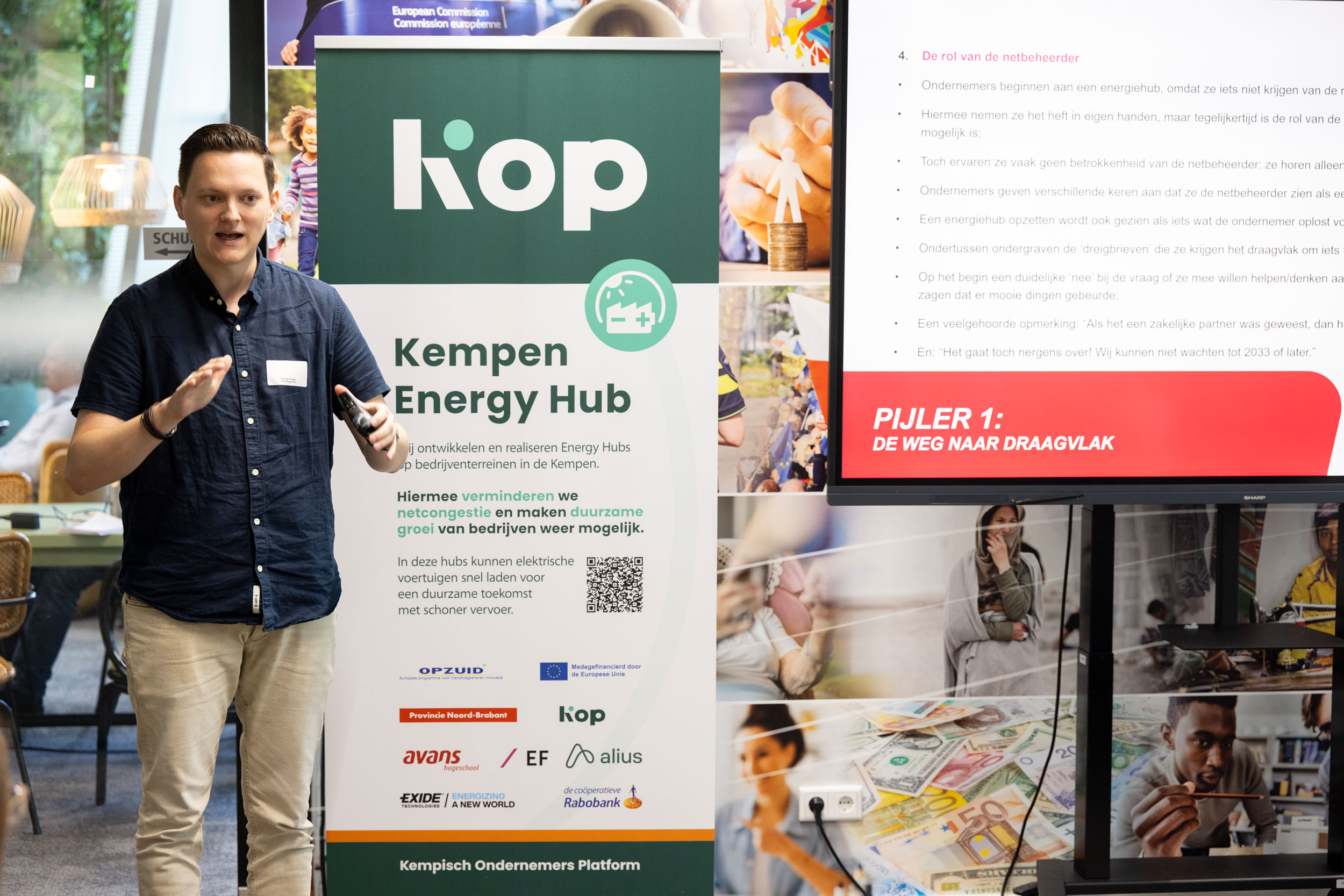Background
The energy transition has led to a rapid increase in innovative projects, such as the development of energy hubs on industrial sites. These projects increasingly rely on complex and specialized electrical installations, including smart distribution panels, battery systems, charging infrastructures, and advanced monitoring and control systems.
A major challenge is that for each new innovation project (such as an energy hub), technicians must be retrained to work with these specific installations. This process is time-consuming and slows down the large-scale implementation of sustainable innovations.
In addition, experience shows that installers frequently encounter issues related to network technology and data connections. Systems often fail to communicate properly, protocols are applied incorrectly, or configurations lack robustness. Suppliers of electronic components face similar challenges, for instance in providing user-friendly or consistently configurable systems. These issues result in delays, error-prone installations, and higher costs.
Relation to the project
This assignment is part of the broader OPZuid project “Kempen Energy Hub”, in which local business parks collaborate to produce, store, and share sustainable energy. The project fosters new forms of cooperation between entrepreneurs, grid operators, municipalities, and knowledge institutions.
A key focus within this program is the development of new knowledge and skills among technicians responsible for installing and maintaining energy hub infrastructures. This internship specifically aims to accelerate the training process and improve the quality of electrical installations, enabling faster, more reliable, and cost-efficient implementation of energy hubs in the region.
Problem statement
At present, there is no standardized or efficient process for quickly and adequately training electrical technicians for the specialized tasks required in innovation projects such as energy hubs.
Moreover, there is no clear approach to improving installers’ network technology knowledge and skills, nor to supporting suppliers in simplifying installation processes.
This results in:
-
Long learning curves for each new project
-
Errors in connecting and configuring data links and EMS communication
-
Delays and higher implementation costs for energy hubs
-
Limited knowledge sharing between installers, suppliers, and project partners
Objective
To develop a blueprint or model that:
-
Structurally accelerates the training and knowledge transfer process for electrical technicians
-
Enhances network technology knowledge and skills among installers
-
Provides suppliers with guidelines to better align their products and documentation with practical needs, making installations simpler, faster, and less error-prone
Research questions
The following research questions are central to this assignment:
Analysis of current training and installation process:
-
How are electrical technicians currently trained for innovative energy projects, and where do the main bottlenecks occur in installing systems with data connections?
Network technology competencies:
-
What specific knowledge and skills does an installer need to successfully install and configure systems with data connections?
Role of suppliers:
-
What can suppliers of electronic components do to make installations simpler, more consistent, and less prone to errors?
Acceleration strategies:
-
Which methods, tools, or forms of collaboration can be used to accelerate training and knowledge transfer (e.g., modular learning, AR/VR training, hands-on micro-learnings, knowledge platforms)?
Blueprint design:
-
How can a reusable blueprint be developed to help installers and suppliers work faster, safer, and smarter in innovative energy projects?
Validation:
-
How effective is the proposed model according to involved installers, suppliers, and project partners, and what improvements do they suggest?
Student tasks
The student will be expected to carry out the following tasks:
-
Literature and field research: Analyze existing training methods in electrical engineering and network technology within the energy sector.
-
Interviews and observations: Conduct interviews with installers, electronic component suppliers, and project managers within energy hubs.
-
Competence and process mapping: Map both the training process and the network technology competencies.
-
Blueprint design: Develop a conceptual model for accelerated training and knowledge transfer, focusing on improving installation quality and communication between installers and suppliers.
-
Validation and recommendations: Test the model with relevant stakeholders (installation companies, suppliers, project partners) and formulate recommendations for implementation.
Result
A practical blueprint or toolkit describing how electrical technicians can be trained more quickly and prepared for working with data-driven installations within energy hubs.
The outcome will also include concrete recommendations for suppliers to improve product documentation and system integration, aiming for a faster and more error-free installation process.
Supervision
The student will be supervised by Mertijn Weeda, Researcher at MNEXT. Weekly progress meetings will take place, and the student is expected to attend meetings with project partners.




